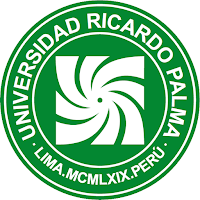Vallejo and the ghostly dismantling of the Nation: the National Anthem in Escalas’ «Liberación»
Vallejo and the ghostly dismantling of the Nation: the National Anthem in Escalas’ «Liberación» Vallejo et le démantèlement fantomatique de la nation: l’Hymne National dans la «Liberación» d’Escalas
Article Sidebar
Main Article Content
Abstract
This article analyses the short story «Liberación» by César Vallejo, included in the book Escalas (1923), based on an interpretation of its central anecdote (the story of a prisoner who pays the price of imprisonment as a result of a swindle by a member of high society) and the inclusion of the playing of the Peruvian National Anthem in the space of the Panopticon as a symbolic framework for this anecdote, as a questioning of the sense of nation as a system of social equality. At the same time, emphasis is placed on the fact that the use of fantastic elements (the ghostly appearance of the prisoner in the final line of the story) is a resource used by Vallejo to reflect on the ambiguous condition of patriotic symbols, which turns out to be an effective means of highlighting their illusory nature. The lurking ghost of injustice and oppression would be a sort of «real» presence that swarms behind the fiction of reality (the representation of the «Peruvian individual» and of Peru contained in the hymn).
Article level metrics
Downloads
Metrics
Article Details

This work is licensed under a Creative Commons Attribution 4.0 International License.
La revista utiliza una licencia Creative Commons para mostrar a los lectores y a los usuarios cómo se pueden utilizar los contenidos publicados.
Los contenidos publicados en la revista están bajo una licencia CC-BY 4.0, la cual permite:
- Compartir, copiar y redistribuir el material en cualquier medio o formato.
- Adaptar, remezclar, transformar y construir a partir del material para cualquier propósito, incluso comercialmente.
Bajo los siguientes términos:
- Atribución. Usted debe dar crédito de manera adecuada, brindar un enlace a la licencia, e indicar si se han realizado cambios. Puede hacerlo en cualquier forma razonable, pero no de forma tal que sugiera que usted o su uso tienen el apoyo de la licenciante.
La información de licencia se muestra e incrusta en las páginas de artículos y en ficheros de texto completo como sigue:
«Este obra está bajo una licencia de Creative Commons Reconocimiento 4.0 Internacional».
Aguirre, C. y Fisher, B. (2022, 5 de agosto). César Vallejo, Trilce y los Talleres Tipográficos de la Penitenciaría de Lima. Milenio, s. p.
Barreto, M. Á. (2020). Narrar el encierro: «Liberación», un cuento trágico y carcelario de Escalas de César Vallejo. Archivo Vallejo. Revista de Investigación del Rectorado de la Universidad Ricardo Palma, 3(6), 57-80. https://doi.org/10.31381/archivoVallejo.v3n6.5210
Bolaño, R. (1999). Monsieur Pain. Anagrama.
González Viaña, E. (2007). Vallejo en los infiernos. Universidad César Vallejo.
González Vigil, R. (1992). Prólogo a Escalas. En C. Vallejo, Escalas (pp. 5-12). Editora Perú y La Tercera.
González Vigil, R. (2012). Prólogo. En C. Vallejo, César Vallejo, Narrativa completa (pp. 7-51). Ediciones Copé.
Lugones, L. (1906). Las fuerzas extrañas. Arnoldo Moen y Hermano.
Mulligan, J. (2017). Introduction to Scales. En C. Vallejo, Scales (pp. ix-xx). Editado y traducido por Joseph Mulligan. Wesleyan University Press.
Nájar, J. (2019). César Vallejo, la vida bárbara. Sinco Editores.
Palma, C. (1904). Cuentos malévolos. Salvat.
Paoli, R. (1969). Vallejo prosista en los años de Trilce. En W. Delgado y C. Milla Batres (eds.), Homenaje internacional a César Vallejo (pp. 9-12). Visión del Perú.
Távara, F. (2014). La justicia en Escalas, de César Vallejo. En G. Flores (ed.), Vallejo 2014. Actas del Congreso Internacional Vallejo Siempre. Tomo I (pp. 323-343). Editorial Cátedra Vallejo.
Vallejo, C. (2023 [1923]). Liberación. En Escalas [edición facsimilar] (pp. 49-69). Sinco Editores.
Zavaleta, C. E. (1997). La prosa artística de Vallejo. En El gozo de las letras. Ensayos y artículos, 1956-1997 (pp. 51-70). Fondo Editorial de la Pontificia Universidad Católica del Perú. https://doi.org/10.18800/9789972420979
Paolo de Lima, Universidad de Lima, Lima, Perú
Contacto: jgomezfe@ulima.edu.pe
Most read articles by the same author(s)
- Paolo de Lima, Antenor Orrego. El sentido americano y universal de la poesía de César Vallejo. Edición, prólogo y notas de Ricardo Silva-Santisteban. Lima: Alastor Editores y Editorial Cátedra Vallejo, 2018, 252 págs. , Archivo Vallejo: Vol. 1 No. 1 (2018): January - June










